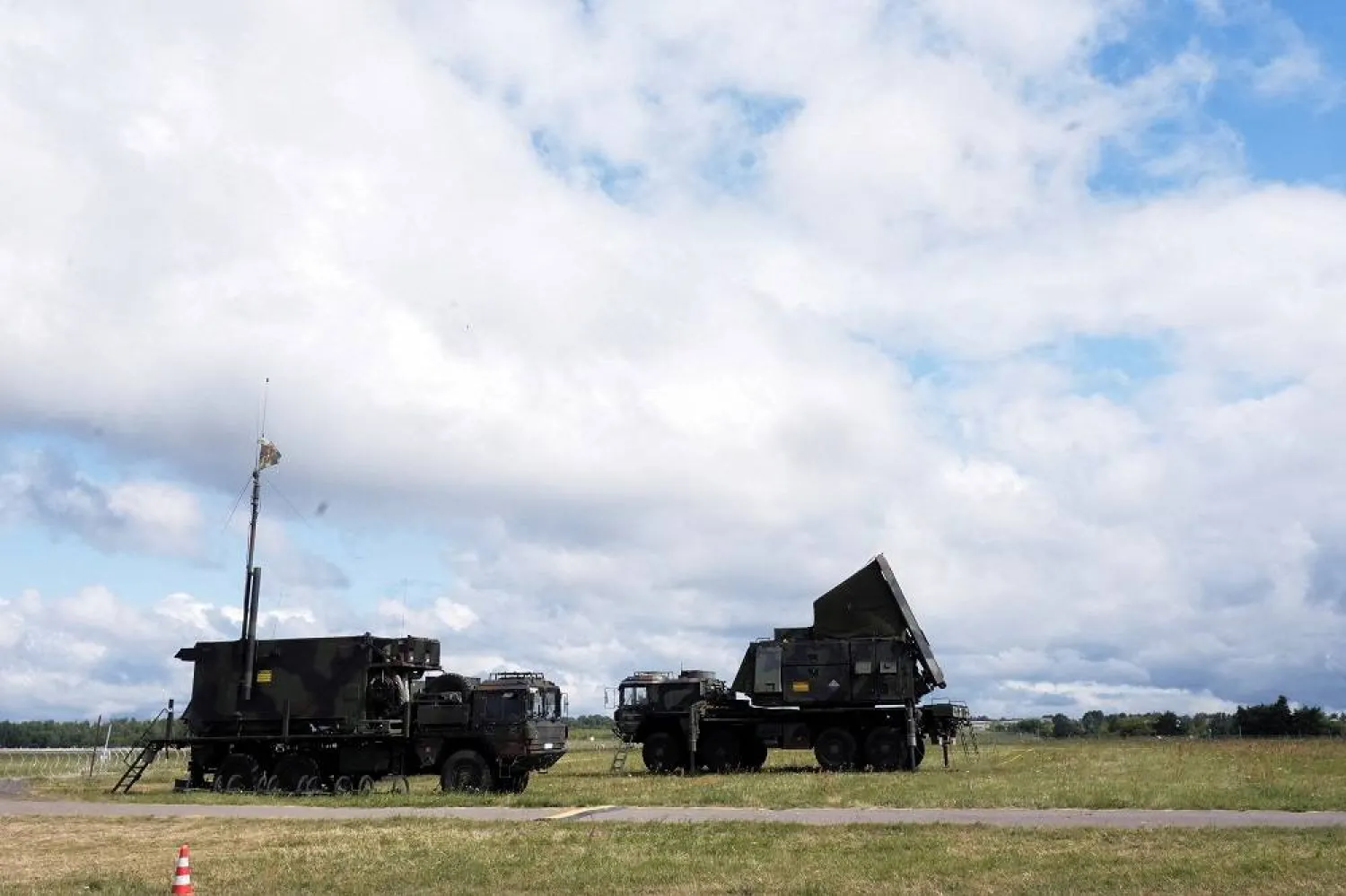European Union countries possessing Patriot air defense systems appeared hesitant on Monday to give any to Ukraine, which is desperately seeking at least seven of the missile batteries to help fend off Russian air attacks.
Russia’s air force is vastly more powerful than Ukraine’s, but sophisticated missile systems provided by Kyiv’s Western partners can pose a major threat to Russian aviation as the Kremlin’s forces slowly push forward along the roughly 1,000-kilometer (620-mile) front line in the war.
Dutch Foreign Minister Hanke Bruins Slot said the Netherlands is “looking at every kind of possibility at the moment” and is offering financial support to a German initiative to help Ukraine bolster its air defenses and to buy more drones.
Asked at a meeting of European Union foreign and defense ministers why the Netherlands is reluctant to send some of its Patriot systems, Slot said: “We are looking again if we can deplete our store of what we still have, but that will be difficult.”
Last week, NATO Secretary-General Jens Stoltenberg said that the military organization “has mapped out existing capabilities across the alliance and there are systems that can be made available to Ukraine.” He did not name the countries that possess Patriots.
The Patriot is a guided missile system that can target aircraft, cruise missiles and shorter-range ballistic missiles. Each battery consists of a truck-mounted launching system with eight launchers that can hold up to four missile interceptors each, a ground radar, a control station and a generator.
A key advantage of the US-made systems, apart from their effectiveness, is that Ukrainian troops are already trained to use them.
But Patriots take a long time to make — as long as two years, some estimates suggest — so countries are reluctant to give them up and leave themselves exposed. Germany had 12, but it is supplying three to Ukraine. Poland, which borders Ukraine, has two and needs them for its own defenses.
Asked whether his country would provide any, Swedish Defense Minister Pål Jonson said: “I don’t exclude that possibility, but right now we’re focused on financial contributions.” He said Sweden would send other systems that could “relieve some of the pressure” on the need for Patriots.
Jonson also noted that more US deliveries of air defense systems might come, after the US House of Representatives passed a package over the weekend of $61 billion in support, including $13.8 billion for Ukraine to buy weapons.
Questioned about whether Spain might step up with Patriots, Foreign Minister José Manuel Albares said that his country “will make its decisions based on the power it has in its hands to support Ukraine.”
“I don’t think we’re helping anyone if we hear all the time what it is that’s being given, when it’s being given and how it’s getting in,” he told reporters at the meeting in Luxembourg.
NATO keeps track of the stocks of weapons held by its 32 member countries to ensure that they are able to execute the organization’s defense plans in times of need.
But Stoltenberg said on Friday that if dropping below the guidelines is “the only way NATO allies are able to provide Ukraine with the weapons they need to defend themself, well that’s a risk we have to take.”
Beyond providing new Patriot batteries, Stoltenberg said that it’s also important for countries to ensure that the batteries they do send are well maintained, have spare parts and plenty of interceptor missiles.
In a separate development at Monday's meeting, Lithuanian Foreign Minister Gabrielius Landsbergis expressed concern about possible Russian sabotage against facilities in Europe being used to train Ukrainian troops.
Two German-Russian men were arrested in Germany last week on suspicion of espionage, one of them accused of agreeing to carry out attacks on potential targets including US military facilities, prosecutors said.
“We are witnessing very similar events in our region, not just in Lithuania but also in Latvia and Estonia as well,” Landsbergis told reporters.
“There seems to be a coordinated action against the European countries that is coming from Russia,” he said. “We have to find a way to deal with the threat ... because Russia is fighting not just against Ukraine but the West as well.”









